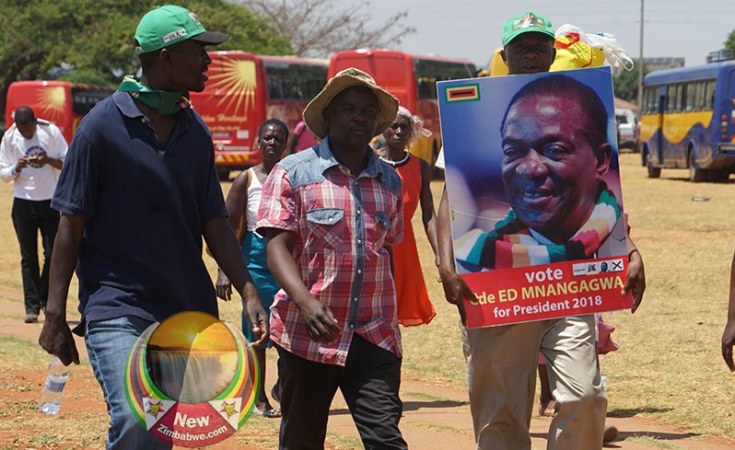Harare — Zimbabweans will cast their ballots in the presidential, legislative, and local council elections on August 23.
The major rival for President Emmerson Mnangagwa is opposition leader Nelson Chamisa who says the electoral landscape continues to favour the ruling ZANU-PF party, as it has in previous elections.
The 2018 elections took place in an atmosphere of cautious optimism on the future course of the southern African country. It was the first election after the dramatic removal of the late former president Robert Mugabe in November 2017 by Mnangagwa, his former deputy. Mnangagwa had worked with the top brass of the army to remove his boss in what was dubbed a "Operation Restore Legacy".++
Now, barely a week before the general election, the Zimbabwe High Court denied the main opposition Citizens' Coalition for Change (CCC) access to the final voter list. High Court Judge Never Katiyo dismissed the CCC's request for the Zimbabwe Electoral Commission (ZEC) to reveal the final voter list and the list of polling places as "not urgent".
Since the final voters' list is now being withheld, this means the main opposition party in Zimbabwe can't access to crucial data regarding the voter rolls and the list of polling places before the election.
It's reported that the police in Zimbabwe cast their postal ballots already. Citizens serving in foreign embassies, members of the military, police, and healthcare professionals who provide vital services are the only groups eligible to cast postal ballots prior to the election day. It's alleged that political parties and observers were unaware of this, so there are concerns that the secrecy surrounding the voting, as well as the number of ballot papers issued, could lead to election fraud.
Saviour Kasukuwere, an independent candidate who made numerous attempts to be included in the presidential election, is not one of the 11 candidates, according to ballot paper designs that are now in the public domain.
And, despite allegations that he was withdrawing from the presidential campaign, MDC-T leader Douglas Mwonzora is on the ballot. Mwonzora announced his withdrawal from the contest last week, saying that the election would not be free and fair because 87 of his parliamentary candidates had been disqualified.
Nevers Mumba, the leader of the Southern African Development Committee's (SADC) election observation mission, has called for a free, fair, and credible election, saying that the results of the August 23 polls will have an impact on the whole region. According to Mumba, the SADC observation mission would engage with participants from all political parties.
A large number of Zimbabweans left as a result of the country's economic crisis and high unemployment rate, many of whom crossed into the neighboring countries in quest of employment and better living conditions. Repeated requests by civil society and the opposition for this group to be granted voting rights have gone unheeded.
The victor of the presidential election must receive at least 50% plus one vote. Failure to do so will result in a presidential run-off on October 2.


